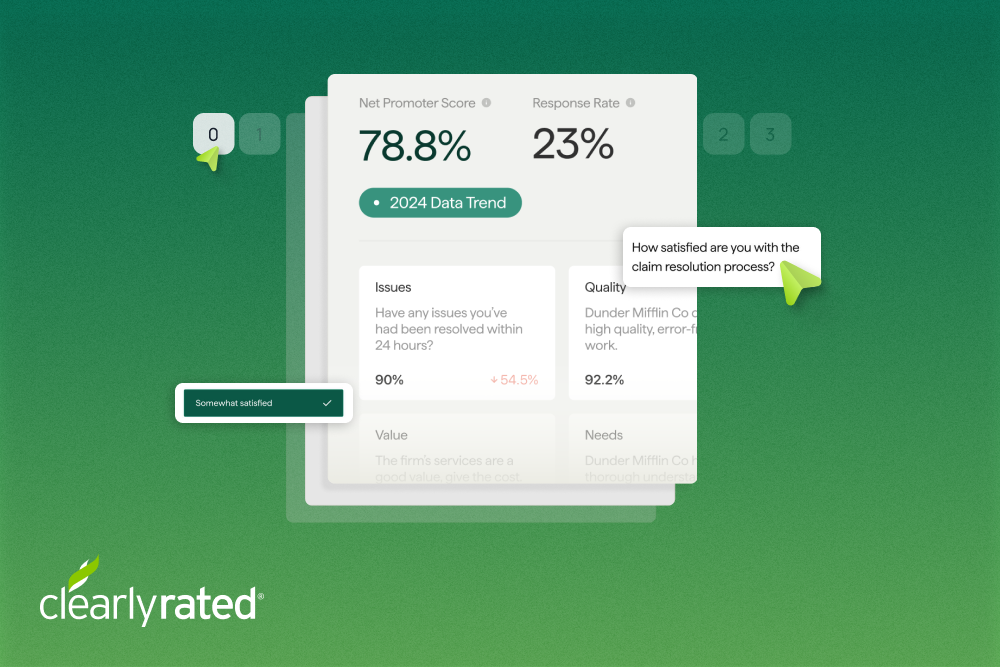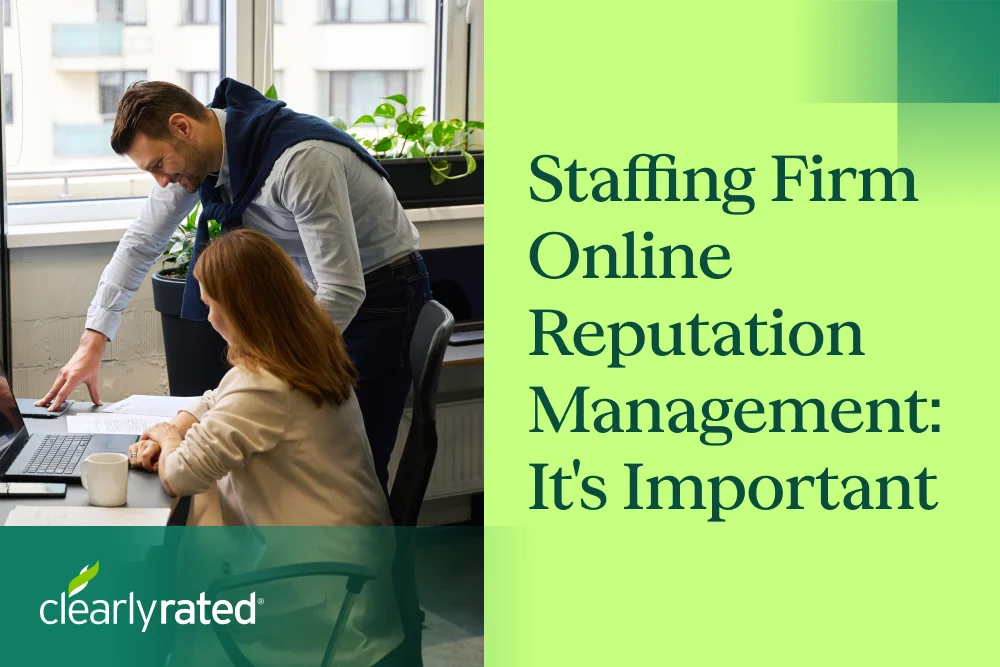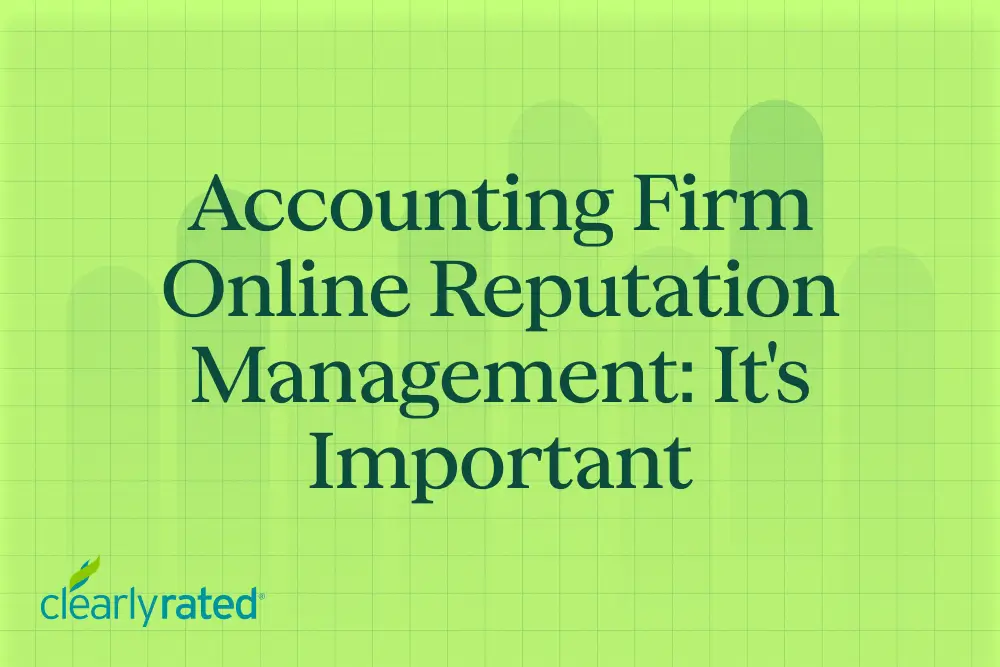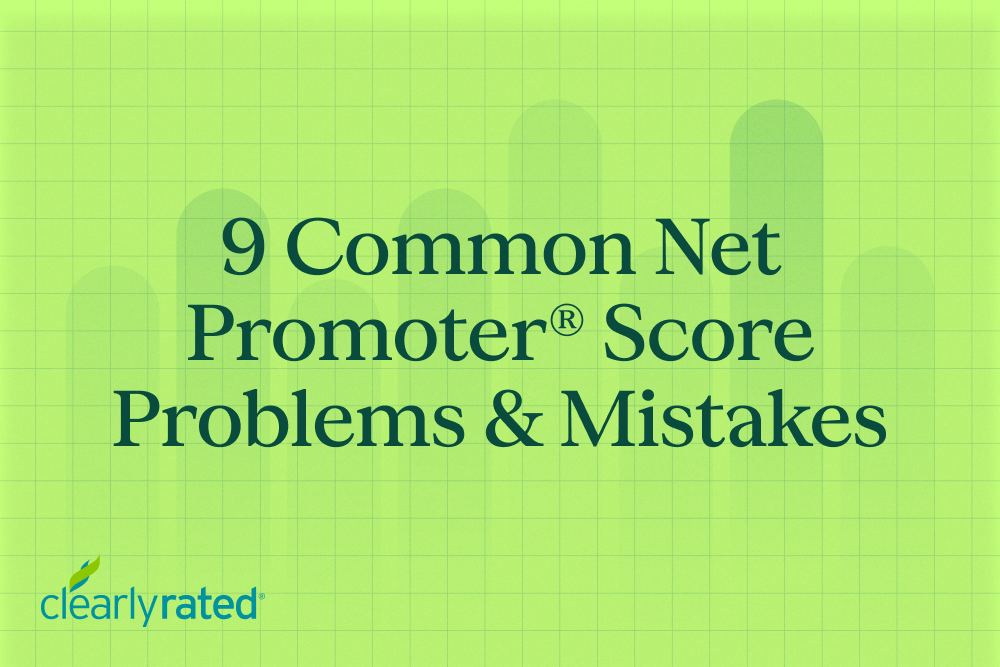Maximizing the ROI of Your Accounting Firm’s Client Experience Using ClearlyRated

For years, most accounting firms have treated good service as a nice-to-have rather than something with a direct financial impact. Many saw it as a soft skill or a general courtesy, without tying it back to growth, retention, or profitability. That mindset has changed fast, and technology has been a big reason behind the shift.
Today, with 54% of accounting buyers rating their country’s economy as only “fair” or “poor” and 41% already focused on reducing costs, firms must prove they deliver tangible ROI through client experience, not just courteous service.
That's why sticking to the old idea of good client service misses the bigger opportunity, especially when measuring accounting firm client experience ROI and its direct impact on growth.
Why Client Experience Matters for Accounting Firms
Still wondering whether CX matters enough to invest in for your firm?
A recent industry study found that 86% of accounting clients are willing to pay more for a better customer experience. On top of that, nearly two-thirds of buyers start their search with a “day one list” of firms (and 96% ultimately choose from that list). If you’re not building loyalty and visibility through strong client experience, you may never make it onto that list in the first place.
That makes CX more than a service (it’s how you educate, engage, and build trust). Here’s why client experience (CX) should move to the forefront of your firm’s priorities:
Focus on relationship-based value instead of transactional services
Clients have moved past seeing your firm as a provider of transactional tasks and expect a deeper kind of engagement that feels trusted, personalized, and proactive.
Implementing effective accounting client retention strategies promotes stronger loyalty, as satisfied clients tend to stay with firms that treat them as long-term partners rather than just another file on the desk.
Use strong client experience to drive retention, referrals, and revenue
When clients enjoy a positive experience, they become advocates who bring referrals and strengthen your reputation. But it’s not just word-of-mouth anymore. Fifty-two percent of buyers vet firms online before ever asking a peer, while 66% of U.S. buyers still lean on referrals as their first source of information.
This means your online presence and reputation must reflect the same quality as your service delivery if you want CX to drive measurable ROI.
Track results through feedback and metrics
You cannot improve what you do not measure, so capturing accounting firm client feedback becomes vital for understanding what drives satisfaction and loyalty.
By using tools that measure client experience ROI, you can connect improvements in communication and service touchpoints to stronger client satisfaction accounting outcomes and increased firm profitability.
The ROI of Client Experience in Accounting
Tracking ROI helps you show how client experience efforts like feedback collection or communication affect your bottom line. When you treat CX as an investment instead of just a cost, it reveals metrics like higher retention, more referrals, and pricing power. Without action and measurement, you won’t get returns.
Let’s look at why these outcomes matter.
Higher client retention drives down acquisition costs
By now, it’s well-established that keeping a current client takes less effort and money than constantly finding new ones.
When clients feel appreciated and well supported, they tend to stick around longer. This reduces the chances they’ll leave, helping you spend less on marketing and onboarding new clients.
Positive client experiences build trust and strengthen relationships
According to a 2024 survey by CapIntel, 72% of investors say trust is the most important quality when selecting a financial advisor. The same study revealed 61% of investors end relationships due to a breach of trust, ranking it higher than poor performance.
In accounting, this trust is just as critical. Ninety-two percent of buyers say the reputation of key firm contacts is highly influential when choosing a firm. Developing that reputation requires delivering responsive service and maintaining consistent communication.
Strong reputation provides a competitive advantage
A strong reputation drives client decisions and shapes your firm’s competitive edge. Firms that invest in client experience get noticed for clarity, responsiveness, and trust.
When more clients say they’re willing to pay more for better service, you gain pricing flexibility, stand out in a crowded market, and strengthen your accounting firm’s growth through strategic differentiation.
Key Metrics to Measure Client Experience ROI
Though measuring customer experience using financial metrics like costs and cash flow feels natural for accounting firms, you also need other kinds of insight that clearly show how customer experience investment drives return.
1. Net promoter score (NPS)
When clients finish working with your accounting firm, you can measure their satisfaction through direct feedback that captures both loyalty and sentiment.
The net promoter score asks the simple but revealing question: “How likely are you to recommend our firm to a friend or colleague?”
Asking this question through email, in-app messages, or surveys gives clear insight into client satisfaction.
Here’s how you can calculate NPS:
NPS = % Promoters - % Detractors
For example:
- Promoters: 70%
- Passives: 20%
- Detractors: 10%
Calculation: 70% (Promoters) - 10% (Detractors) = 60.
Accounting customer experience tools such as ClearlyRated allow you to collect feedback consistently using industry surveys, compare your performance with accounting industry benchmarks, and monitor progress over time.
2. Client retention and churn rates
According to recent professional services data, the churn rate among accounting-related services is 27%. That means your firm loses more than a quarter of its clients each year if you do not act on experience gaps.
Capturing the percentage of clients who stay, or in other words, client retention. gives your team a clear picture of loyalty and growth potential. Lower customer churn and high retention show that you deliver a CX that keeps people from walking out the door.
3. Lifetime client value (LCV)
LCV estimates the total revenue a client generates during their entire tenure with your firm. Here’s how you can calculate it:
CLV = Average Purchase Value x Average Purchase Frequency x Average Customer Lifespan
For instance, if a customer spends an average of $50 per purchase, makes three purchases per year, and remains a customer for five years, their CLV is $750 [$50 x 3 x 5 = $750].
The longer the relationship and the higher the engagement across services like tax, advisory, or bookkeeping, the higher the LCV climbs, making your accounting firm's growth much more sustainable and strategic.
4. Referral rates and reputation scores
Referral rates measure how many new clients come from existing client recommendations. Reputation scores can come from review sites, survey ratings, or brand sentiment tracking across professional forums.
High referral and reputation figures signal that your firm earns trust and delivers consistent service quality in accounting firms. When you combine referral rates with client feedback data, your firm gains proof of ROI from CX investments in actionable terms.
Strategies to Improve Client Experience in Accounting Firms
Now that you have selected your key customer experience metrics, it is time to put your plan into action. Here is how you can use the data you collected to improve your CX.
Proactive communication & transparency
Communication forms the foundation of every healthy relationship, including the one you have with your clients. Clients expect updates at every stage. Yet, nearly one in five buyers cite a lack of updates during onboarding as a major issue, which drags NPS down by 28 points. That makes consistent communication one of the easiest ways to protect client satisfaction and ROI.
To maintain effective communication with your clients:
- Set aside regular times to check in and schedule client meetings to keep everyone on the same page
- Use emails effectively and offer chat options to address client concerns quickly and clearly
- Ask clients for feedback on what they want and how you can adjust your service
When your communication stays open and honest, clients feel respected and valued, which builds trust.
Personalized client engagement
Businesses that recognize buying patterns, past purchases, and unique tastes can create experiences that feel thoughtful and relevant. For instance, if a client often shops for athletic gear, sending timely promotions about new sportswear releases can spark excitement and drive action. When businesses maintain this level of personalization consistently, it strengthens trust, encourages repeat purchases, and makes customers feel valued.
Ignoring these opportunities means losing engagement and loyalty to competitors who communicate more thoughtfully. Creating connections that feel human and attentive helps companies foster long-term relationships while keeping their offerings relevant and appealing at every interaction.
Faster response times & issue resolution
Clients expect quick answers when they reach out with questions or problems, and fast responses show your firm values their time. For faster response times and issue resolution, set clear goals for response times and hold your team accountable to meet those standards every time. Addressing issues right away helps prevent minor problems from growing into larger frustrations.
Once you do that, keep clients updated on the progress of their concerns to maintain transparency and confidence. A quick and open approach to resolving problems keeps clients satisfied and willing to continue the relationship.
Leveraging technology for efficiency
Your firm can increase customer satisfaction by using the right technology to support client service. The demand is clear: 52% of accounting buyers have already adopted AI internally, and 70% expect their accounting partners to use AI to improve efficiency, responsiveness, and accuracy.
Platforms like ClearlyRated provide detailed feedback from clients that you can use to track satisfaction over time.
On the other hand, automation tools can take care of routine tasks, freeing your team to focus on solving client problems.
Regular client feedback loops
As much as possible, you should examine every interaction your clients have with your firm and compare those moments with their expectations.
You can also ask questions about common difficulties clients encounter so you can find ways to reduce those obstacles. When you feel unsure about a client’s needs, reaching out directly through surveys or interviews gives you honest feedback that improves service.
Challenges in Measuring Client Experience ROI
Measuring client experience ROI can be challenging for accounting firms, as many factors influencing satisfaction and loyalty cannot be easily translated into simple financial terms. Here are some of these factors:
- Linking soft metrics such as satisfaction and trust to revenue: Accounting firms often struggle to directly connect softer metrics like satisfaction, trust, and loyalty with financial performance. While these factors drive repeat business and referrals, they rarely show up in profit and loss statements.
- Difficulty in collecting structured feedback: Many firms lack standardized methods for gathering input regularly, which leads to incomplete data. Without a steady flow of clear feedback, it becomes tough to track progress or spot areas needing attention.
- Maintaining unbiased client responses: When surveys feel transactional or when staff influence responses, the data loses reliability and meaning. Anonymous, simple surveys help capture honest client feedback, providing clearer insight into satisfaction and firm performance.
ClearlyRated: Driving ROI Through Better Client Experience
Metrics only matter when you use them to improve client relationships, so you should never treat them as the finish line. When you gather feedback, you gain insights into what clients value, but you need action to turn those insights into measurable results.
A customer experience and reputation management platform like ClearlyRated gives you a structured way to do exactly that.
ClearlyRated is an industry leader in client satisfaction surveys and reputation management, which makes it a trusted partner for accounting firms that want reliable client feedback. Here’s what the platform offers:
- Provides benchmarking surveys that measure satisfaction across industries and firm sizes, giving leaders a clear picture of how they compare to competitors
- Translates client experience into practical ROI metrics such as NPS, retention rates, and referral activity, so every data point ties directly to business growth
- Strengthens the firm's reputation by publishing verified ratings and building online visibility with credibility that comes from third-party validation
- Builds trust with clients by gathering, analyzing, and displaying feedback through an independent source
As a result, accounting firms that use ClearlyRated often see higher retention, more referrals, and measurable returns on their client experience initiatives.
Building a Stronger CX Strategy for Accounting Firms
A robust CX strategy for accounting firms links satisfaction data directly to revenue, retention, and referrals, showing leadership why it deserves top priority. Supporting this, Gartner’s 2024 Customer Experience Survey found that 92% of CX leaders reported revenue growth from FY23 to FY24, compared with only 50% of trailing organizations, highlighting the tangible impact of strong CX.
By adopting structured surveys, tracking NPS, and consistently acting on feedback, firms can build loyalty and reduce churn. ClearlyRated helps firms take these steps with a proven survey platform that delivers trusted insights and measurable ROI. Schedule a meeting today to see how ClearlyRated can support your firm.
FAQs
What is the ROI of customer experience?
Customer experience drives client retention, referrals, and revenue growth. Firms investing in CX often see measurable financial gains by improving satisfaction and loyalty through targeted actions based on real client feedback.
How quickly can ROI be seen using ClearlyRated?
Firms usually begin noticing ROI within several months of using ClearlyRated by applying survey insights to improve client satisfaction, boost retention, and generate more referrals steadily over time.
What is a healthy NPS benchmark for accounting firms?
A healthy NPS for accounting firms usually falls between 50 and 70. Scores in this range show strong client loyalty and indicate successful customer experience management.
FAQs



.webp)





.png)


%20(1).png)

.webp)
.png)






%5B1%5D.webp)







.png)










_%20The%20Ultimate%20Guide.png)





.png)




















%20in%20the%20Workplace.png)










.png)

%20and%20how%20can%20you%20increase%20it.png)
_%20A%20Step-by-Step%20Guide.png)

.png)
.png)




_.png)



%20in%202028.png)


_%20The%20Ultimate%20Guide%20(2024).png)


